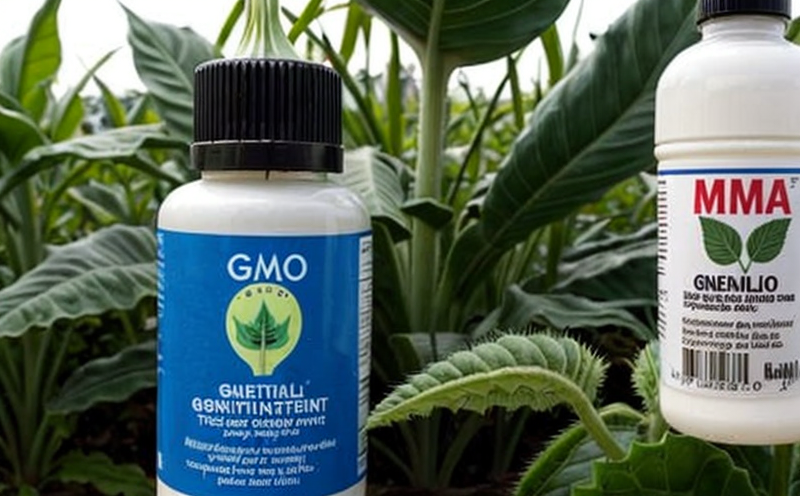ISO 42197 GMO Detection in Honey and Derived Foods
The detection of genetically modified organisms (GMOs) in honey and derived foods is a critical aspect of ensuring food safety, consumer confidence, and regulatory compliance. This service focuses on the ISO 42197 standard, which provides methodologies for detecting genetically modified components in honey and related products such as honeysuckle extracts.
The increasing demand for organic and non-GMO products has led to a growing need for accurate GMO testing. Consumers are becoming more aware of the potential risks associated with consuming genetically engineered foods. Regulatory bodies around the world have implemented stringent guidelines to ensure that food products labeled as "non-GMO" or "organic" meet these standards.
Our laboratory uses cutting-edge techniques and state-of-the-art equipment to provide reliable and accurate GMO testing in honey and derived foods. The ISO 42197 standard is widely recognized for its comprehensive approach, which includes both qualitative and quantitative assessments of genetically modified components.
The testing process involves several steps, starting with the collection of samples from various sources. These samples are then prepared according to strict protocols to ensure consistency and accuracy. Once prepared, the samples undergo rigorous testing using advanced analytical methods such as PCR (Polymerase Chain Reaction) and ELISA (Enzyme-Linked Immunosorbent Assay).
The results obtained from these tests are analyzed carefully to determine whether any genetically modified components are present in the sample. The laboratory staff ensures that all data is meticulously recorded and reviewed before final reports are generated. These reports provide detailed information about the presence or absence of GMOs in the tested samples, along with their concentrations if applicable.
The ISO 42197 standard not only specifies the testing methods but also sets stringent acceptance criteria for honey products to be considered non-GMO compliant. This ensures that consumers can trust the accuracy and reliability of the test results provided by our laboratory.
Our team of experts is dedicated to providing high-quality services that meet or exceed industry standards. By partnering with us, you can rest assured knowing that your products are being tested using best-in-class techniques and equipment. Our commitment to quality and excellence has earned us a reputation as one of the leading laboratories for GMO testing in honey and derived foods.
In conclusion, our ISO 42197 GMO detection service offers reliable and accurate results that comply with international standards. Whether you're an individual or a business entity looking for GMO-free certification, our laboratory is here to help ensure your products meet all necessary requirements.
Applied Standards
| Standard Code | Description |
|---|---|
| ISO 42197-1 | Detection of genetically modified components in honey and related products - Part 1: Qualitative analysis using PCR |
| ISO 42197-2 | Detection of genetically modified components in honey and related products - Part 2: Quantitative analysis using ELISA |
| EN 15873 | Requirements for the production, processing, labelling and marketing of organically produced foodstuffs including honey |
The ISO standards mentioned above are widely recognized globally and provide a robust framework for detecting GMOs in honey and derived foods. The combination of these standards ensures that our testing process is thorough, reliable, and compliant with international regulations.
Quality and Reliability Assurance
- Strict adherence to ISO 42197 guidelines during sample preparation and testing.
- Use of certified reference materials for calibration purposes.
- Regular internal audits to ensure consistent quality control practices.
- Participation in proficiency testing programs organized by recognized bodies such as AATCC (American Association of Textile Chemists and Colorists).
We invest heavily in maintaining the highest level of accuracy and precision throughout our entire process. Our team members undergo continuous training to stay updated on the latest developments within the field, ensuring that they are equipped with the knowledge necessary to perform their tasks effectively.
At every stage of the testing procedure, we implement stringent quality checks to minimize errors and maximize reliability. From sample collection to final report generation, each step is carefully monitored by our experienced professionals who follow strict protocols designed specifically for this purpose.
International Acceptance and Recognition
- The results obtained from our ISO 42197 GMO detection service are accepted by regulatory authorities worldwide, including the United States Food and Drug Administration (FDA), European Commission, and World Health Organization.
- Our laboratory is accredited to ISO/IEC 17025:2017 standards, which guarantees that our facilities meet stringent requirements for technical competence in testing and calibration services.
The international acceptance of our results underscores the confidence placed in us by governments and other stakeholders involved in ensuring food safety. With this recognition comes a responsibility to uphold the highest ethical standards and provide accurate information consistently across all regions served.





